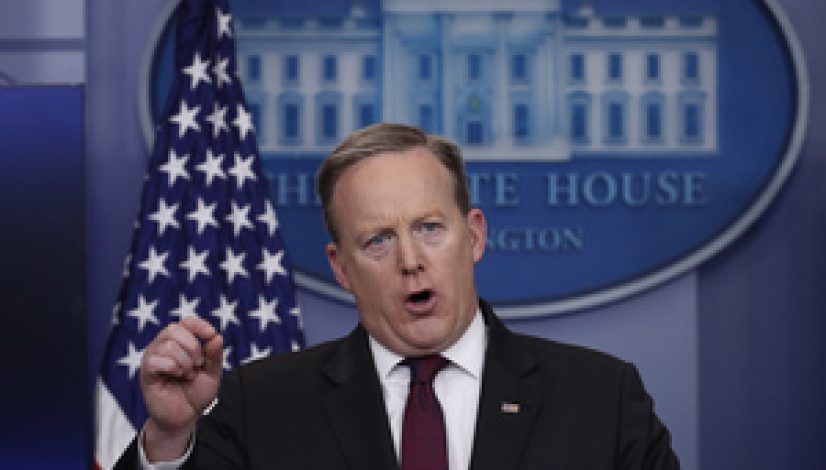Washington State Will Resist Federal Crackdown On Legal Weed, AG Ferguson Says
With White House press secretary Sean Spicer suggesting Thursday that the Trump administration would crack down on states that have legal recreational marijuana, Washington Attorney General Bob Ferguson vowed to defend Washington state’s legal pot law.
“I will resist any efforts by the Trump administration to undermine the will of the voters in Washington state,” Ferguson said in an interview.
Spicer said during a press briefing Thursday that the issue rests with the Justice Department. But he said, “I do believe that you’ll see greater enforcement of it.”
He added it’s “something that the Department of Justice I think will be further looking into.” No details were provided.
Ferguson and Gov. Jay Inslee sent a letter to U.S. attorney general Jeff Sessions, dated Feb. 15 that laid out arguments for Washington’s state-regulated pot industry.
They said illegal dealing is being displaced by a tightly regulated industry that is projected to pay $272 million in taxes this fiscal year. That frees up law-enforcement officers to protect communities facing more pressing threats. They also noted that legal pot entrepreneurs must undergo criminal and financial background checks.
“Given the limited resources available for marijuana law enforcement, a return to ‘full’ prohibition’ is highly unlikely to end the illicit production, trafficking and consumption of marijuana,” wrote Ferguson and Inslee, who asked for a meeting with Sessions.
This is not a fight President Donald Trump and his administration should pick, Inslee said earlier this month. “They would be on the wrong side of history,” the governor said.
Ferguson said his lawyers are already “quite prepared” to argue against a federal crackdown but will begin reviewing strategies now that Spicer has sent the administration’s first signals about recreational marijuana.
“When he talks about ‘greater enforcement,’ I take that seriously,” said Ferguson, whose legal team twice prevailed over Trump’s lawyers in federal court decisions on the president’s travel ban.
With 56 percent of the voters approving, Washington legalized adult possession of small amounts of marijuana and state-regulated farming and sales of pot in November 2012.
Tension has existed ever since about the federal government’s ongoing prohibition of all forms of marijuana.
The Obama administration let Washington and Colorado, the first two states to legalize recreational marijuana, proceed with their experiments as long they adhered to the so-called Cole Memo of August 2013.
Authored by U.S. Deputy Attorney General James Cole, the memo told Washington and Colorado they could carry out the voters’ will as long as they followed eight Department of Justice priorities, such as preventing sales to minors and preventing legal pot revenue from going to criminals.
As a candidate, Trump said he supported medical marijuana. He said recreational marijuana “should be a state issue.”
Spicer’s comments come a day after the Trump administration rolled back an Obama-era directive on public-school bathroom requirements for transgender students, arguing it should be a state, not federal decision.
Ferguson said it was inconsistent for Trump and Republicans to support states’ rights and a crackdown on legal marijuana in states where voters have approved it.
A national poll by Quinnipiac University released Thursday showed that 71 percent of voters said the government should not enforce federal laws against states that have legalized medical or recreational marijuana. All groups — Republicans, Democrats, Independents, young, old, men, women — agreed with this view, according to the poll.
The Justice Department has several options, including filing lawsuits on the grounds that state laws regulating pot are unconstitutional because they are pre-empted by federal law.


